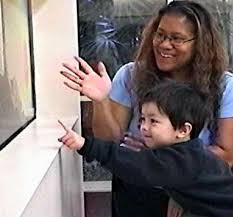
The researchers worked with the families of 53 children with ASD. The children were between the ages of two and six years and all had a language delay. The parents were assigned to either the study’s experimental or control group. The experimental group participated in a 12-week program of pivotal response training. The control group participated in a 12-week program of basic information about autism. The researchers assessed the children’s verbal skills at the beginning, halfway through, and at the end of the study.
Pivotal response training is based on behavioral interventions like applied behavioral analysis. However, pivotal response training is more flexible and better accounts for a child’s individual interests. A parent using pivotal response training might, for example, if his child says ‘ba’ give the child a ball. To ensure that parents were doing pivotal response training correctly, parents made video recordings at the 6- and 12-week marks. The researchers were able to see how well parents performed the interventions.
Of the parents who received instruction in pivotal response, 84 percent used the therapy correctly. The children who received pivotal response training exhibited larger improvements in their language skills than the children in the control group. The children who received pivotal response improved in both the number of things they said and their functional word use.
One of the important findings of this study, explains the researchers, is that the parents were able to successful administer a therapy that they learned in a group setting. “Parents really do feel more empowered when they’re in a group setting. They’re talking, connecting, and sharing their experiences. It gives them a sense of community,” explained study co-author Kari Berquist, Ph.D, a clinical instructor in psychiatry and behavioral sciences and an autism clinician
The researchers plan to continue their research by investigating which factors predict the types of autism therapies that work best for different children and their families.
This research is published in the Journal of Child Psychology and Psychiatry.
Previous news in autism:



 © 2026 Unyte Health US Inc.
© 2026 Unyte Health US Inc.